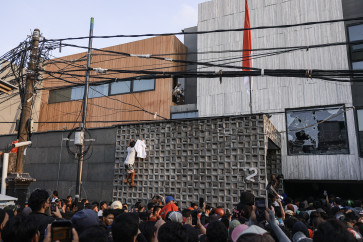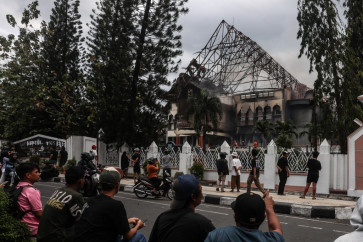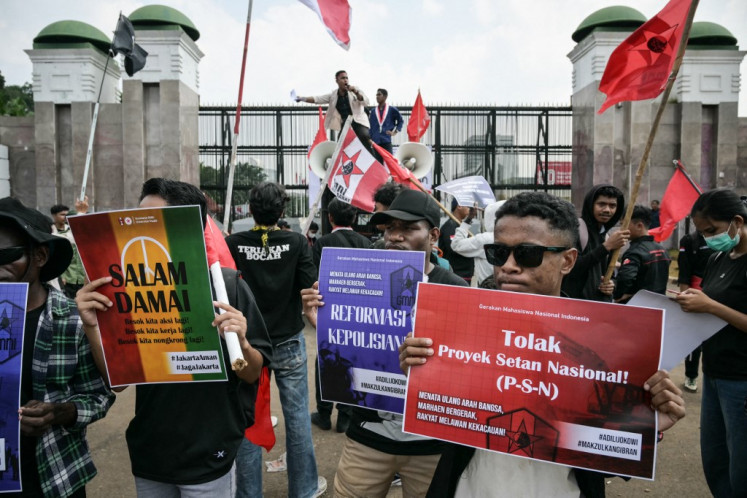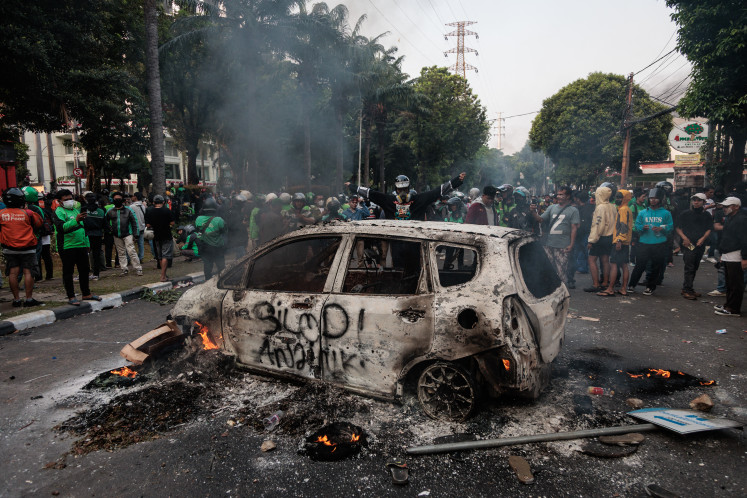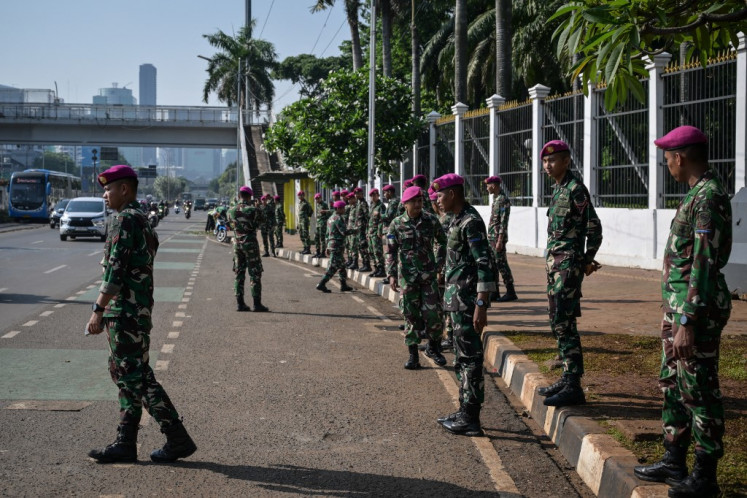Popular Reads
Top Results
Can't find what you're looking for?
View all search resultsPopular Reads
Top Results
Can't find what you're looking for?
View all search resultsGraft suspect Nazaruddin faces money-laundering charges
The country’s top antigraft body has vowed to expand its investigation into former Democratic Party treasurer and lawmaker Muhammad Nazaruddin by charging him with money laundering, which many believe will reveal other corrupt acts he may have committed
Change text size
Gift Premium Articles
to Anyone
T
he country’s top antigraft body has vowed to expand its investigation into former Democratic Party treasurer and lawmaker Muhammad Nazaruddin by charging him with money laundering, which many believe will reveal other corrupt acts he may have committed.
Corruption Eradication Commission (KPK) spokesman Johan Budi said on Friday that commission investigators had charged Nazaruddin with money laundering the follow-up cases against the rogue politician, who will soon face an initial trial on corruption charges alone.
The KPK has completed its indictment against Nazaruddin, who is accused of masterminding a scheme to rig a tender for the construction of the SEA Games’ athletes’ village, worth Rp 191.7 billion (US$21.47 million), in Palembang, South Sumatra.
“The case involving the new money-laundering charge developed from the athletes’ village investigation in which we found preliminary evidence of other possible corruption,” Johan said, refusing to disclose details of the cases. “Just observe the trial on the SEA Games case,” he said.
This will be the KPK’s first case involving money-laundering charges. The new 2010 Money Laundering Law, which replaced the old 2002 law, provides the commission with the authority to probe money laundering along with corruption as its predicate crimes. The old law only granted the authority to the police and the Attorney General’s Office (AGO).
KPK chairman Busyro Muqoddas previously said that the KPK would soon name new suspects surrounding Nazaruddin’s cases. “[The suspects] will be politicians … from the House of Representatives,” he said.
Analysts believe that the money- laundering charge will help the KPK charge more high-profile figures implicated in corruption cases centering on Nazaruddin.
Should Nazaruddin be indicted under the Money Laundering Law, judges will be able to order the implementation of the reverse burden of proof principle against the disgraced politician.
The law authorizes judges to ask Nazaruddin to disclose the sources of his wealth and where he has transferred the money, with the help of reports from the Financial Transaction Reporting and Analysis Center (PPATK).
The center previously said that Nazaruddin had made at least 90 banking transactions within 10 days after being declared a suspect by the KPK. The transactions, which were made before the KPK froze Nazaruddin’s bank accounts, are believed to have been part of his efforts to “secure” his “illicit” assets.
Under the new Money Laundering Law, however, the judges have the power to order the seizure of the assets, whether still in Nazaruddin’s accounts or not, if the defendant fails to prove that the money came from legal sources.
The KPK’s announcement to use the new law came as an answer to those who have criticized the commission for its “tardiness and hesitation” in charging politicians implicated in cases surrounding Nazaruddin, particularly those from President Susilo Bambang Yudhoyono’s Democratic Party.
In the athletes’ village case alone, at least four Democratic Party politicians are implicated. Their illicit roles were revealed by Nazaruddin himself before he was arrested in Cartagena, Colombia in August.
The four politicians are: lawmaker Angelina Sondakh; lawmaker, and Nazaruddin’s brother, M. Nasir; the member of the House’s budget committee, Mirwan Amir; and Youth and Sports Minister Andi Mallarangeng.
These lawmakers, as well as the Indonesian Democratic Party of Struggle’s I Wayan Koster, Mirwan’s colleague on the budget committee, allegedly received kickbacks from the construction company that
won the athletes’ village tender. “We appreciate the KPK’s move. I hope there will be no more excuses to avoid charging anyone involved in the cases,” Indonesia Corruption Watch analyst Febri Diansyah said.
The KPK previously announced that Nazaruddin was implicated in 35 alleged corruption cases involving an estimated total of more than Rp 6 trillion of state funds, mostly centering on state procurements, thanks to Nazaruddin’s powerful lobbies at the House.
Many believe that other high-profile figures, especially politicians, were also involved in those cases.
Nazaruddin cases:
- Bribery surrounding the construction of SEA Games athletes’ village in Palembang, worth Rp 191.7 billion.
- Corruption surrounding the procurement of research equipment and laboratory devices at five state universities.



